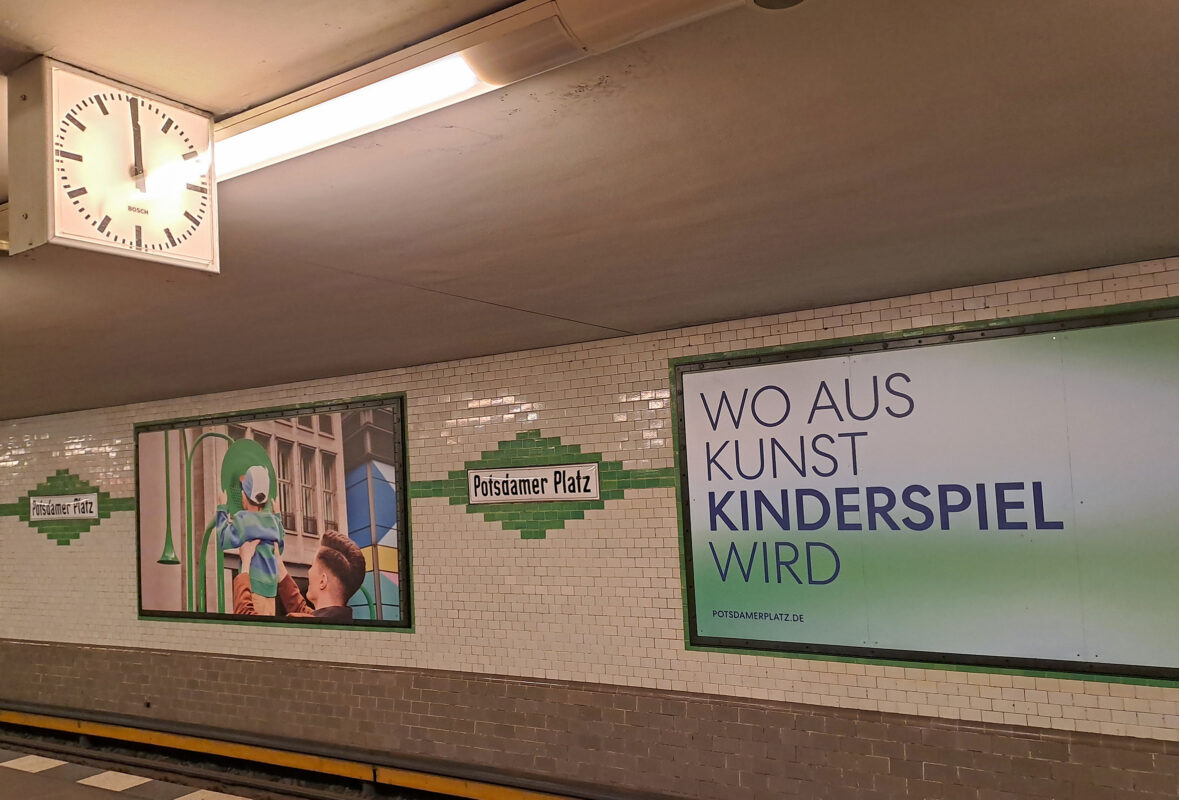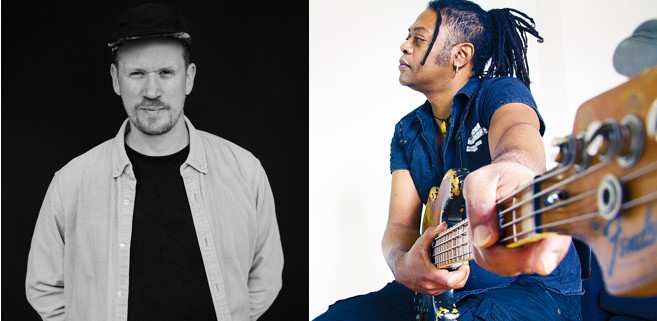Communication in the service of music?
Joachim Reiber, editor-in-chief of the Austrian magazine "Musikfreunde", talked about his work at the "Musik & Mensch" series. The invited discussion partner, Regina Kuratle from the Basel-Stadt Department of Education, hardly got a chance to speak.

By the end of the evening, you know that Joachim Reiber loves to tell stories, tells them poetically, plays with language like a juggler with his balls. And in doing so, he almost declares the subject of his writing, music, to be a minor matter.
Or rather. Encounters when writing about music was the title of the lecture that Reiber gave on December 13 at the Institute of Musicology at the University of Basel. It was the fourth evening of the concert and colloquium series Musik & Mensch, which is organized by the University of Teacher Education of the University of Applied Sciences and Arts Northwestern Switzerland (FHNW). It is aimed primarily at teachers and students of music education and aims to provide food for thought and raise awareness of new topics in music teaching. However, writing about music seems too far removed from everyday school life - Reiber only spoke to a small audience. This did not detract from his entertaining and stimulating presentation. Reiber took this year's main theme of the series, Encounter - Dialogue - Relationship, at its word and reflected on how encounters come about in his work, under what conditions dialogues take place and what long-term relationships can develop.
Internal affair
The magazine of the Gesellschaft der Musikfreunde in Vienna not only lists all the concerts taking place at the Vienna Musikverein, but also features major portraits of conductors and soloists, long interviews and essays on music history. The magazine has already won six awards - in the customer magazine category. "Am I selling music with the means of language?" asked editor-in-chief Reiber in the laudatory speech for his articles.
He prefers to speak of "successful communication in the service of music". All the purposefulness that should underlie such a customer magazine is anathema to him. No matter how often the judges praise the successful implementation of the corporate philosophy, the appropriate use of media, the outstanding customer loyalty - Reiber reportedly doesn't care about any of that. He is simply interested in writing.
"Writing is a lonely thing, right from the start," he says and goes into great detail. He talks about how, as a teenager, he secretly admired the music critic in his home town of Stuttgart, how he was initiated into the service capabilities of language by linguists during his studies, and how he learned from philosophers the other day that language can also be about something else. How, for example, small children learn to speak, babble out of a love of life, murmur out of a frustration with life: to speak in order to express themselves.
Reiber also writes to express himself, to communicate - not to communicate something. This is important to him and runs through the evening like a common thread. "Writing about music - is music on the outside? Is it an object that is waiting to be translated?" asks Reiber, turning decidedly against all those program booklet writers, work reviewers, introductory writers and those who want to bring things closer, who place themselves above the reader with their knowledge. He sees it differently: "Getting in touch with the music through writing, seeking an encounter within myself, with what the music triggers in me - an inner matter."
Little relevant
As witty as Reiber's lecture was, as worth listening to and reading as his language proved to be, he also went round in circles. It was therefore not surprising that the subsequent discussion with Regina Kuratle was once again sparked by a linguistic quibble: like a composer who hears where the piece wants to go, Reiber hears where the text wants to go. Kuratle, herself a musician and currently in charge of the school harmonization project for the Basel-Stadt Department of Education, understood this to mean "waiting to see where the text wants to go" - something she could not afford to do in her purpose-driven profession. And the words were already spinning around waiting, listening, saying, meaning ...
Even an interjection from the audience was unable to break this up. The author asked how the topic of mediation was faring, given that degree courses with art mediation, music mediation and cultural mediation in their names are springing up like mushrooms. They thus mark at least a certain need for a relationship to be established between art and the recipient - not least due to the ever decreasing resources for music in schools. This question was also dealt with on a linguistic and anecdotal level: Reiber finds the word mediation "terrible", but confirmed that the Vienna Musikverein could also show a little more curiosity in trying out other concert forms. There was no time left for an answer from Regina Kuratle after Reiber's extensive comments.
An exchange with a person responsible for designing future curricula would have been very much in the spirit of the event. The aim is to gather ideas to enrich school lessons. The concert and colloquium series therefore includes lectures on Olivier Messiaen's bird music (with ornithologist Stefan Heller and organist Tobias Willi), concerts with encounters between traditional Japanese shakuhachi flutes and contemporary electronic music, and in Solothurn, Mojca Gal and the baroque ensemble Les Eléments introduce the music and way of thinking in the 18th century with works by François Couperin.
Collected ideas
To ensure that the ideas are not lost in the fleeting moment of the lecture, a website is being planned that will archive the lectures of the past eight years and invite pupils to exchange ideas. The first content should be available from February 2013.
Perhaps this platform will make it easier to realize what Markus Cslovjecsek, Head of the Chair of Music Education at the FHNW, actually wanted to initiate with the series: To find out how to get young people interested in music in the long term.
Cslovjecsek also conducts research in this area on other levels. He co-designed the "Creafon" educational toy, for example, but he is also interested in integrating music into other subjects. Understanding music as an integral subject at school, raising the awareness of listening, the writing of listening, for example in language learning - other countries are already further ahead in this respect. He refers to the European music portfolio, where projects on integrative music didactics can be viewed.
We can only hope that the dialog will not only take place online, but also face to face. Ten more evenings will offer the opportunity to do so in the coming year.
Journal "Musikfreunde" of the Gesellschaft der Musikfreunde in Vienna:
www.musikverein.at
To the series:
www.fhnw.ch/ph/kultur-und-sport/musik
Platform under construction:
www.musikundmensch.ch
Photo: wandersmann - pixelio.de








